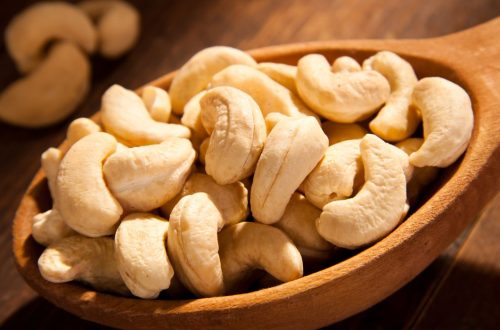
How To Start Commercial Apple Farming | SkillsAndTech
Apple is an important fruit in commercial trading. And it ranks fourth in the most widely produced fruits in the world after the banana, orange, and grape. Commercial apple farming is hugely profitable when you use a proper farm management system.
However, it demands substantial initial capital investment. And you must have a large area of land for an apple orchard. A 10 acre is a considerable size to have a small-size apple farm.
The scientific name of the apple is Malus Domestica. In addition, this is a deciduous fruit tree in the rose family. Major apple-producing countries are China, the United States of America, Poland, Turkey, Iran, Italy, France, and India. In India, major apple-producing states are Arunachal Pradesh, Himachal Pradesh, Jammu & Kashmir, and Tamil Nadu.
See Also: How To Start Ladies Footwear Manufacturing Business
In this article, we put information about commercial apple farming methods and techniques for your ready reference.
Table of Contents
Stepwise Information Guide on Starting Apple Farming
Economic Importance Of Apple Farming
Apples are one of the most valuable fruit crops globally. In addition, the demand is increasing day by day. Furthermore, rising income and introducing new varieties are the major reason for it. In addition, there are also growing demands in the apple processing industry. And some of the value-added applications are apple juice, jam, chips, candy, vinegar, and wine.
See Also: How To Start Electronic Fan Regulator Manufacturing Business
China leads the world in apple production, harvesting a record 38 million tons in 2012. In addition, there is also an emerging demand for organic apples.
Health Benefits Of Apples
- First of all, biting and chewing an apple stimulates the production of saliva in your mouth. Thus, it reduces tooth decay by lowering the levels of bacteria.
- The consumption of flavonol-rich apples helps to reduce your risk of developing pancreatic cancer by up to 23%.
- Apples help to reduce your risk for diabetes.
- The soluble fibres in the apples help to reduce cholesterol.
- Red apples contain an antioxidant called quercetin. Quercetin can help boost and fortify your immune system.
- Finally, we can catch a very popular statement “One apple a day, keeps doctors away.”
See Also: How To Start A Shrimp Farming Business
Things To Consider In Commercial Apple Farming
- First of all, ensure that the soil is amenable to apple production.
- Choosing appropriate varieties for the local climate is crucial.
- Ensure proper fruit thinning and harvesting techniques.
- You must adopt a proper plant protection system.
- Apple farming demands substantial capital investment. So you must arrange that much startup capital to start an apple orchard.
- Finally, ensure a proper irrigation system for your apple farm.
Best Varieties For Apple Cultivation
There are almost 7500 apple varieties worldwide. However, some of the popular varieties in the USA are Golden Delicious, Cortland, Haralred, Honeycrisp etc. In addition, there are some popular varieties in India. They are M 9, M 26, M7, MM 106, MM 11, Prima, Priscilla, Sir Prize, Jonafree, Florina, Macfree, Nova Easy Grow, Coop 12, Coop 13, etc.
See Also: How To Start Egg Tray Making Business
Also, there are some popular hybrid varieties. They are Lal Ambri (Red Delicious x Ambri), Sunehari (Ambri x Golden Delicious), Chaubattia Princess, Chaubattia Anupam (Early Shanburry x Red Delicious), Ambred (Red Delicious x Ambri), Ambrich (Richared x Ambri), Ambroyal (Starking Delicious x Ambri), etc.
Agro-Climatic Condition For Apple Farming
Most apples are relatively cold-hardy. However, a more important factor to consider is when the fruit ripens. In areas with shorter growing seasons, apples that require long growing seasons to ripen are not appropriate. In areas with the shortest season, summer ripening apples may be the only option.
See Also: How To Start Non Stick Cookware Manufacturing Business
Dry temperate areas are suitable for apple cultivation. The fruits produced in these areas are of high quality with high sugar content and long shelf life.
You will need to have a temperature during the growing season is around 21-240 C. For optimum growth and fruiting, apple trees need 100-125 cm. of annual rainfall. And it requires an even distribution during the growing season.
See Also: How To Start A Clutch Plate Making Business
Excessive rains and fog near the fruit maturity period result in poor fruit quality with improper colour development. Also, may occur in fungal spots on its surface. Areas exposed to the high velocity of winds are not desirable for apple cultivation.
Suitable Soil For Apple Farming
You can grow apple trees in a wide range of soils from medium-textured clays to gravelly sands. Loamy soils, rich in organic matter with pH 5.5 to 6.5 are suitable for apple farming. In addition, the soil must have proper drainage and aeration. Wet soils lead to poor aeration and increased incidence of crown rot in apples.
Apples prefer a slightly acidic to neutral soil. Extreme soil pH values result in nutrient tie-up or toxicity and poor tree and fruit development. It is important to amend the pH in acidic soils by incorporating lime before planting.
See Also: How To Start Your Own Yoga Business
Apple Farming Basic Steps
Soil Preparation for Apple Farming
Proper layout and soil preparation are very essential in establishing a new apple orchard. All aim to produce high, early-yielding, top-quality crops. Furthermore, ease of harvesting and management are also key factors you must take into account. Modern systems use higher densities. And normal densities range from 400-2,500 trees/acre.
Planting
You can adopt a square or hexagonal system of planting. Dig the planting hole two to three times wider than the root system of the tree and deep enough to just meet the root collar. However, you can mix compost into the back-fill soil.
See Also: How To Start Blouse Hook Making Business
Irrigation
You must arrange a proper irrigation system for healthy tree growth. In addition, you must irrigate young trees every 4 – 10 days based on your soil type and temperatures. Mature trees need deep watering about every 2 weeks during the growing season so that moisture reaches a depth of 2-3 feet. This deep irrigation encourages a well establish deep-rooted tree.
Training & Pruning
Pruning and training are important for apple orchards. And neglect will result in poor growth and delayed fruiting. Pruning a young tree controls its shape by developing a strong, well-balanced framework of scaffold branches.
See Also: How To Start Soft Drink Making Business
Proper pruning of weak and undesirable branches/twigs is necessary after six years of plantation. Furthermore, you must remove unwanted branches.
Manuring
Heavily pruned trees are more vigorous and require less nitrogen. Some varieties of apple trees are also naturally faster growing and may require no fertilizer to maintain acceptable growth and fruit production. However, over-fertilization actually reduces fruit production and makes trees more susceptible to pest and diseases. Retest soil every 3-4 years to determine what nutrients (if any) you will need to apply to the soil.
Weed Control
See Also: How To Start PVC Cables Making Business
Frequent hand pulling and shallow cultivation, no deeper than an inch, controls weeds and minimally disturbs roots. Deeper cultivation disrupts shallow roots and is not recommended for young, establishing trees.
Plant Protection System In Apple Farming
Producing the best fruit requires the control of diseases and insects. However, some of the potential harmful pests and diseases are fire blight and powdery mildew, spider mites, scale, aphids, and codling moths. You must adopt proper plant protection systems for your apple orchards.
Harvesting & Storage In Apple Farming
You must harvest the fruit before it is fully ripe, but after it has had time to mature. This varies according to cultivar and different fruit varieties will often ripen at different times over a three-month period. As the fruit matures, the starch changes to sugar, and the aroma and flavor develop.
See Also: How To Start Naphthalene Balls Making Business
Sugars are the major soluble solid in fruit juice and therefore soluble solids are often used as an estimate of sugar content.
Storage conditions are vital to long-term quality and shelf life. Fruit needs to be harvested with minimal bruising, cooled quickly, and kept in controlled atmosphere conditions, so as to avoid any further physiological changes to the fruit.
See Also: How To Start Shoe Laundry Business
Furthermore, apples need high relative humidity (90-95%) to minimize moisture loss from fruit. Proper post-harvest management is essential to secure optimum profit from apple farming.





4 Comments
Pingback:
Pingback:
Pingback:
Pingback: